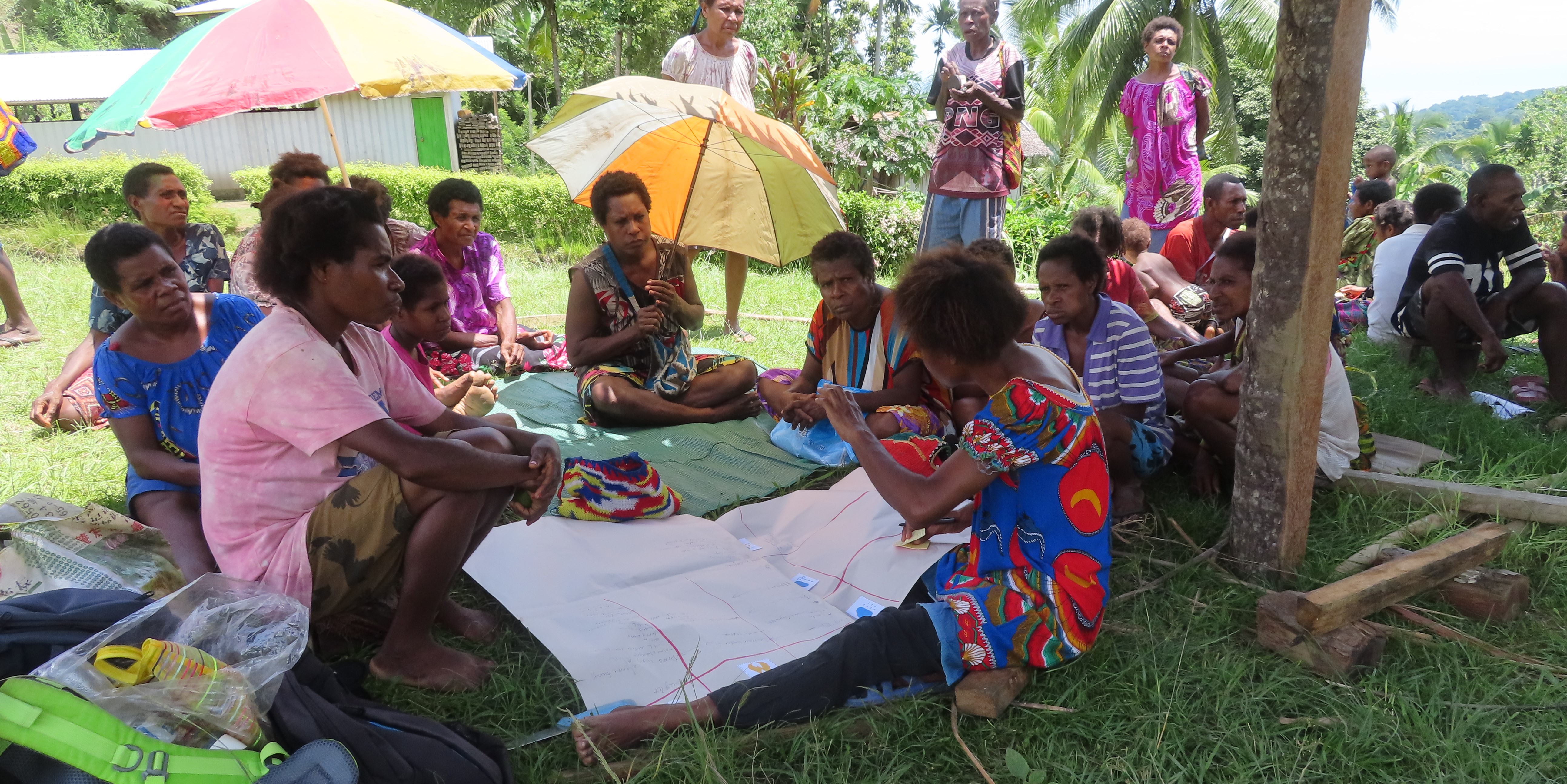WaterAid partnering to improve climate-resilient water security in Papua New Guinea

Community engagement in one of the pilot sites in Papua New Guinea
WaterAid has partnered with Hydrology Risk and Consulting to develop and test a climate adaptation framework within inclusive water, sanitation and hygiene (WASH) in Wewak District, Papua New Guinea.
The Wewak District Development Authority developed Wewak’s first ever five-year District WASH plan 2019 – 2023. The plan was developed from data evidence collected from a detailed baseline of access to WASH services conducted between October 2018 to February 2019 by district government officers trained by WaterAid. This initiative, funded by the Australian Government (DFAT) under the PNG-Australia Partnership, was led by WaterAid Australia and WaterAid PNG in partnership with the Wewak District Development Authority and the East Sepik Provincial Health Authority (ESPHA) and other provincial and district partners and stakeholders in the WaSH sector including local rights groups.
The findings of the baseline highlighted several profound and troubling issues around WaSH in Wewak District.
Only 37% of Wewak’s rural communities have access to a safe water supply. 34% of households have a toilet of their own, with 41% of all households in the district defecating in the open. Less than 1% of households in rural areas have a handwashing facility near their toilet.
The schools and health facilities of the Wewak District are similarly inadequate in protecting against public health risks. 80% of rural schools in the district have unimproved bush toilets, and not a single one of the 91 schools visited was found to have basic handwashing facilities with soap and water both available.
Of the 27 health care facilities in the district, none were found to have met the standards of basic sanitation. Only two of the facilities had adequate handwashing access with soap and water or alcohol hand rub.
These findings from the district baseline are nearly on par with overall national statistics (JMP, 2021) where over 63% of the Papua New Guinean population do not have adequate access to a sufficient water supply, and 81% do not have adequate access to a basic hygienic toilet. These are among the lowest numbers for any country globally and are the worst for the Pacific region.
This startlingly low access has resulted in higher incidences of water-borne diseases such as typhoid and cholera. Papua New Guinea has a life expectancy of only 64.72 years, according to World Bank figures in 2020.
With such a bleak picture, WaterAid and Hydrology and Risk Consulting are building on this district baseline, focusing on strengthening local engagement to strengthen the implementation of the Wewak District WASH plan.
This project is developing a practical framework that defines categories of inclusive WASH responses that build climate resilience. This will contribute to the evidence base on climate adaptation and resilient WASH programming and test the appropriateness of the framework for the Wewak District. It combines traditional community knowledge of local water resources with sophisticated water balance modelling.
The project is also identifying where and how WASH programming responses can be progressively strengthened. It will also investigate the potential additional cost of taking a comprehensive, whole-of-Sustainable Development Goal (SDG) 6 approach.
As the effects of climate change are starting to be particularly felt around the Asia-Pacific region, the importance of bolstering the water security of countries such as Papua New Guinea is increasingly felt. WaterAid’s work will continue to help the Wewak District, and Papua New Guinea more broadly, in improving their access to adequate, safe, clean water, sanitation and hygiene in the face of climate threats.

